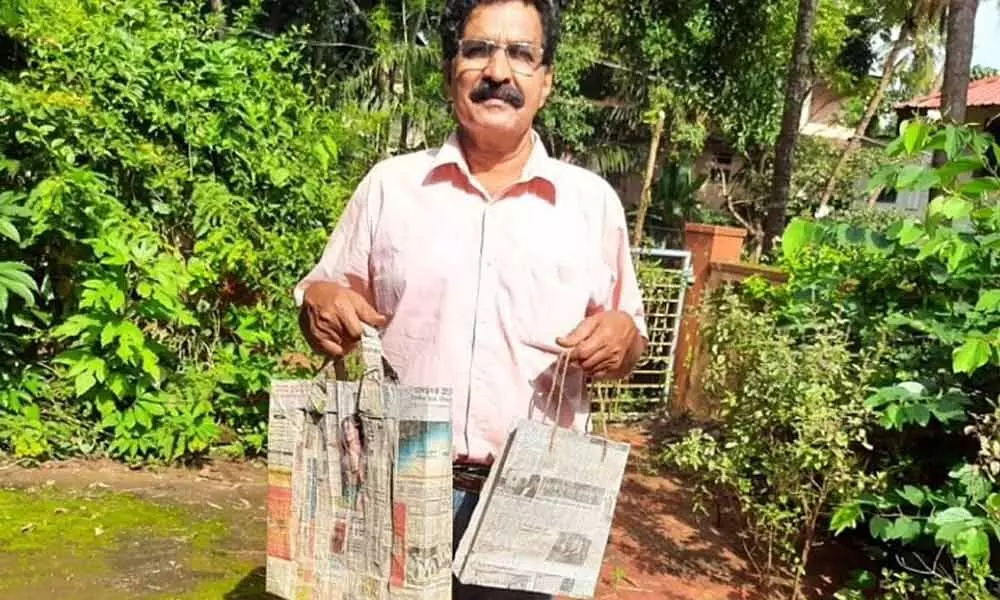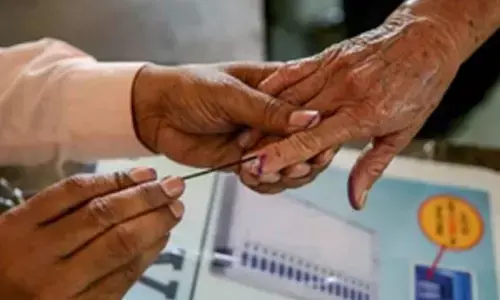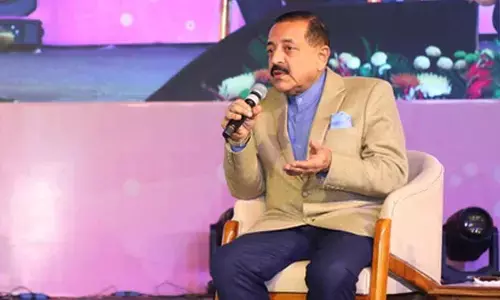Karnataka Engineer Creates A Bag Out Of Newspapers That Carry Weights Of Up To 10 kg

Dhananjay Hegde
- Dhananjay intended to create a bag that was both sturdy and long-lasting.
- He devised bags made from newspaper and maize powder, which can carry up to 10 kilos of weight, will not face leakages, and can readily handle meat and other damp objects without clogging.
A lot of people are switching from plastic to cloth or paper bags, these environmentally friendly options have a disadvantage. When transporting wet products like fish, milk packets, and other wet items, they're tough to utilise. Similarly, Dhananjay Hegde of Karwar, Karnataka, was likewise confronted with a similar issue.
Dhananjay intended to create a bag that was both sturdy and long-lasting. As a result, to tackle the issues he devised bags made from newspaper and maize powder, which can carry up to 10 kilos of weight, will not face leakages, and can readily handle meat and other damp objects without clogging. He's also created a machine that will allow the product to be commercially feasible.
He opted to undertake the work with leftover newspapers and tried to strengthen a double sheet paper with banana plant fibre stitches.
He explains that the material is 'eco-friendly' and 'locally available.'
The paper bag can hold up to 10 kilos of weight.
While explaining his procedure he stated that his chose to repeat the stitches inside the first, leaving a 1 cm gap. The bag's increased strength allowed it to carry weights of up to 10 kg. However, it would still be unable to transport goods with damp surfaces. Then to add an extra protective layer, he successfully added corn resin or gum could that works like a waterproof covering. The gum enables water preventing from coming into contact with the paper, and liquids were kept without any puncture into the layer. To avoid hazardous chemicals from newspapers from coming into contact with the corn starch layer and food, he added an extra layer of white paper.
Dhananjay enlisted the help of his friend Dattatreya Bhatt to design a prototype system that could roll out several bags in order to make the bags commercially viable. He says 35 companies have approached him about commercialising the bags.
He is willing to operate the machine for free for commercial entities or those who are looking for work. He is found eleven more products that can be created in the same way, comprising paper plates and other single-use items. He continues, that are working on establishing a superior model for the same.



















